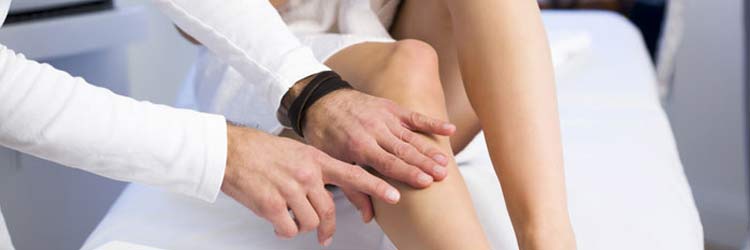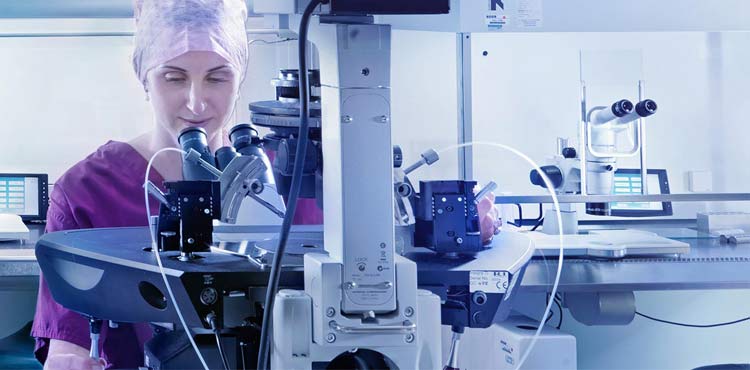Varicose Veins Treatment Hillsborough, NJ & Somerville, NJ
Don’t Live with Swollen or Twisted Veins. Central Jersey Surgeons Offers Varicose Veins Treatment.

What are varicose veins?
Varicose veins are swollen, twisted veins that you can see just under the skin, usually occurring in the legs. According to the National Institutes of Health (NIH), they are very common. Your risk increases if you are older, a female, obese, don’t exercise or have a family history. They can also be more common in pregnancy. If you think you have varicose veins, the doctors at Central Jersey Surgeons in Hillsborough, NJ and Somerville, NJ can diagnose them from a physical exam.
How do varicose veins form?
Your veins have one-way valves that help keep blood flowing toward your heart. If the valves are weak or damaged, blood can back up and pool in your veins. This causes the veins to swell, which can lead to varicose veins.
Are they dangerous?
Varicose veins can be painful, but they don’t usually cause serious medical problems. Rarely, they may cause:
- Ulcers – Unsightly, painful sores may form on the skin near varicose veins, particularly around the ankles. A warning spot usually appears on the skin before an ulcer forming, and it’s important to see a doctor for ulcers or early symptoms.
- Blood clots – When deep leg veins become enlarged, they may swell significantly. Anyone experiencing sudden leg swelling should seek urgent medical attention, as it may indicate a dangerous blood clot.
- Bleeding – Veins that are very close to the skin may burst, causing minor bleeding. You should see a doctor for bleeding to prevent future issues.
Some vein problems are related to varicose veins:
- Telangiectasias are small red clusters of blood vessels usually found on the upper body, including the face. They can be a sign of a more serious medical condition and should be seen by a doctor.
- Spider veins affect the capillaries and are smaller than varicose veins.
- Varicoceles are varicose veins in the scrotum linked to male infertility.
- Venous lakes are varicose veins that appear on the face and neck.
- Reticular veins are flat blue veins often seen behind the knees.
- Hemorrhoids are varicose veins in and around the anus.
How common is this condition?

Any vein can become varicose, but those in the legs and feet are more likely to be affected. Varicose veins are quite common because we all spend a lot of time standing and walking, which increases the pressure in the veins of the lower body.
For many people, varicose veins and spider veins (a milder variation) are nothing more than a cosmetic concern. For others, they can cause aching pain and discomfort. In some cases, they can lead to more serious problems or signal a higher risk of other circulatory issues.
Many common conditions may increase the risk of having varicose veins, including:
- Aging – Normal, age-related deterioration may cause the valves to weaken and function less efficiently, and the veins to appear more visible.
- Gender Hormonal changes related to puberty, pregnancy, menopause and even birth control pills can increase a woman’s risk of developing varicose veins.
- Pregnancy A growing fetus puts pressure on leg veins; however, varicose veins that occur during pregnancy can recover after delivery over time.
- Obesity Excess weight can create extra pressure that can cause varicose veins.
- Family History About half of people with varicose veins have a family history of the condition.
- Inactivity Standing or sitting for extended periods of time, especially with bent or crossed legs, can force the veins to have to work harder to pump blood to the heart, raising the risk for varicose veins.
How are varicose veins diagnosed?
Central Jersey Surgeon’s doctors can diagnose varicose veins for people from a physical exam at our office in Hillsborough, NJ. However, a condition called Chronic Venous Insufficiency (CVI) is caused by varicose veins.With CIV, veins have problems sending blood from the legs back to the heart. Often you will need an ultrasound to diagnose CVI.
What varicose vein treatment options are there?
Varicose vein treatment usually depends on their severity. Simple lifestyle changes such as exercising, weight loss, wearing loose clothing, avoiding sitting or standing for long periods and elevating the legs can all improve the condition. In fact, self-help procedures, such as wearing compression stockings every day, are often the best first approaches for varicose vein treatment.
If self-care does not help, Visit Central Jersey Surgeons in Hillsborough, NJ and Sommerville, NJ to explore vein treatment options. Our doctor may recommend procedures to remove or treat them. Some varicose vein treatments are quick, easy and don’t require a hospital stay or long recovery period. Less invasive varicose vein procedures are usually performed on an outpatient basis, and people can return to their normal activities in one or two days.
Because you have been diagnosed with CIV, most insurances will cover the cost of medical varicose vein treatment.
Medical procedures utilized by Dr. Buch at Central Jersey Surgeons to treat varicose veins include:

Radiofrequency ablation
Inserting a thin tube (catheter) into an enlarged vein and heating the tip of the catheter to close off the varicose vein. As the catheter is pulled out, the heat destroys the vein by causing it to collapse and seal shut. This procedure is usually done for larger varicose veins. For more information, read this.
Ambulatory phlebectomy
Removing smaller varicose veins through a series of tiny skin punctures. Only the parts of your leg that are being picked are numbed in this outpatient procedure. Scarring is minimal.
Vein stripping
This procedure involves removing a long vein through small incisions. This is an outpatient procedure for most people. Removing the vein won’t adversely affect circulation in your leg because veins deeper in the leg take care of the larger volumes of blood.
Sclerotherapy
Injections of saline solution can be used in varicose vein treatment for small- and medium-sized veins. The solution serves to scar and then close the veins, which are absorbed by the body in a few weeks to a few months. Larger veins are sometimes injected with a foam saline solution. Sclerotherapy is effective if done correctly, although veins may need to retreatment to fade. The procedure doesn’t require anesthesia and is usually performed in the doctor’s office
Laser surgery
Laser treatments to close off smaller varicose veins and spider veins works by sending strong bursts of light onto the vein, causing it to slowly fade and disappear. No incisions or needles are necessary.
Catheter-assisted procedures
The surgeon inserts a thin tube into the vein and heats the tip using either radiofrequency or laser energy. As the catheter is pulled out, heat destroys the vein, causing it to collapse and seal shut. This procedure is most commonly used to treat larger varicose veins.
High ligation and vein stripping
This surgical procedure involves tying off a malfunctioning vein and removing it through a small incision. For most, this is an outpatient procedure.
Ambulatory phlebectomy
The surgeon removes smaller varicose veins through a series of tiny skin punctures. This is also an outpatient procedure, and it causes minimal scarring.
Endoscopic vein surgery
This procedure is usually used for advanced cases with leg ulcers when other techniques have failed. It’s also outpatient surgery, using a thin video camera inserted in the leg. This allows the surgeon to see and close varicose veins and then remove them through small incisions.
Can I drive after varicose vein treatment?
For the most common, less invasive varicose vein procedures, patients can drive themselves home, sometimes even back to work. Many varicose vein treatments are performed in our Hillsborough, NJ office and require little to no downtime.
For more information about Varicose Veins Contact Central Jersey Surgeons in Hillsborough, NJ at (908) 722-0030 or visit Central Jersey Surgeons blog.


No Comments
Sorry, the comment form is closed at this time.